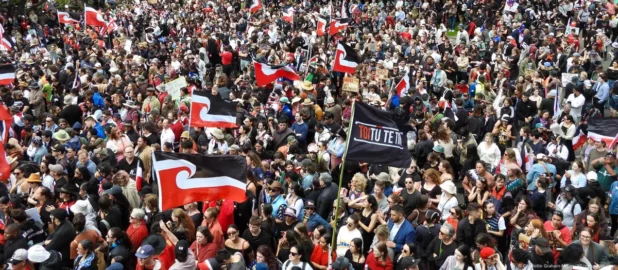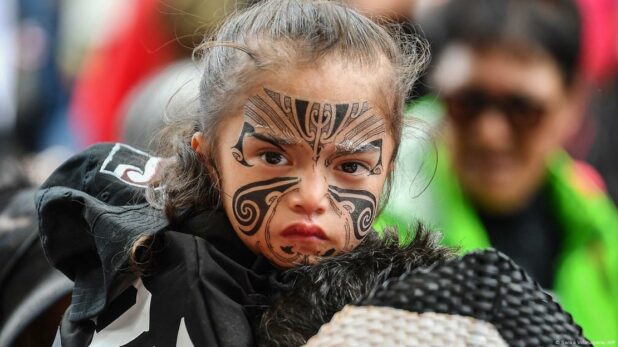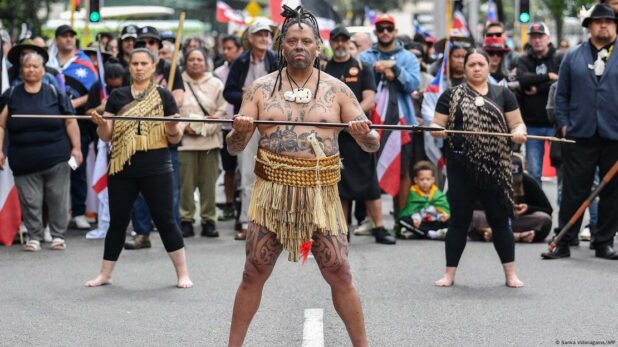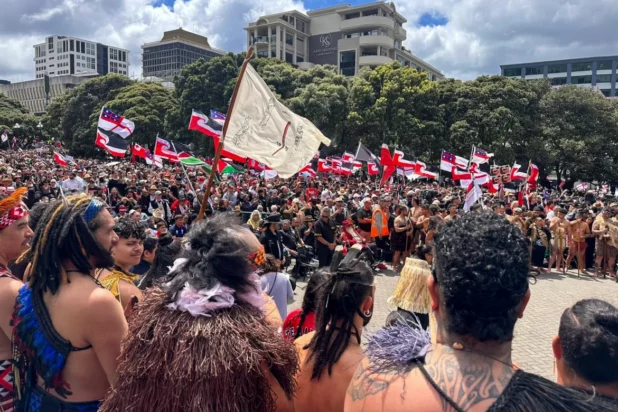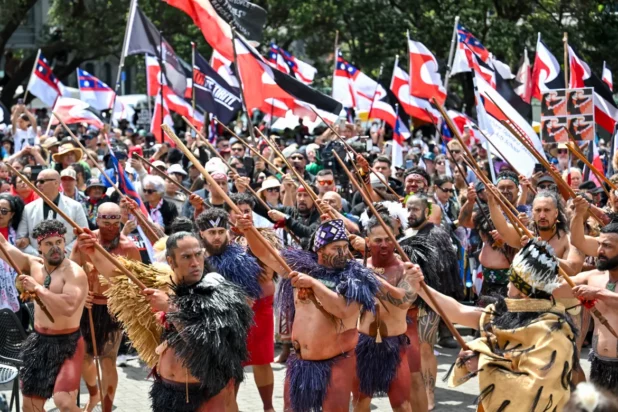Previously: New Zealand: Based Tribespeople Interrupt Parliament to Perform Lion King Style Tribal Dance
Can’t they just pass out liquor to shut these people up?
Of course they could. But it’s white women who go out there and stir them to anger. They wouldn’t even know what laws were if it wasn’t for women going around and whipping them into a frenzy.
Tens of thousands of people in New Zealand gathered in front of Parliament in Wellington on Tuesday, to show dissent against a bill they said would dilute Indigenous people’s rights.
Chants supporting the Indigenous Maori rang out across New Zealand’s capital as at least 42,000 people demonstrated in what is one of the country’s largest-ever protests to oppose a bill.
A nine-day community march — known as hikoi — began in northern New Zealand ahead of Tuesday’s rally. People have journeyed to Wellington on foot and in cars to participate in the demonstration.
Over 203,650 people signed a petition opposing the bill, which was presented to the Parliament. Even the city’s mayor joined the protest.
“It’s different to when I was a child,” participant Shanell Bob said. “We’re stronger now, our tamariki are stronger now, they know who they are, they’re proud of who they are,” she said, using the Maori word for children.
Maori people make up 20% of New Zealand’s 5.3 million population but have higher rates of deprivation, incarceration and poor health care outcomes when compared to the rest.
The Treaty Principles Bill was introduced at the Parliament earlier this month by legislators looking to reinterpret a 184-year-old treaty signed between the British and the Indigenous Maori tribe.
The bill is championed by the libertarian ACT New Zealand party, a junior partner in the ruling center-right coalition government. The ACT believes the treaty, in its current interpretation, discriminates against non-Indigenous citizens.
The treaty, which lays down how the British and Maori chiefs agreed to govern, still guides policy today.
Though the bill does not have sufficient support in the Parliament to become legislation, protesting citizens say it is necessary for them to raise their voices against the sentiment.
Shouldn’t these people be thanking whites for not wiping them out?
I don’t understand.
On what grounds are they making demands? What leverage do they have?
David Seymour, the head of the party promoting this law, is actually part Maori himself

